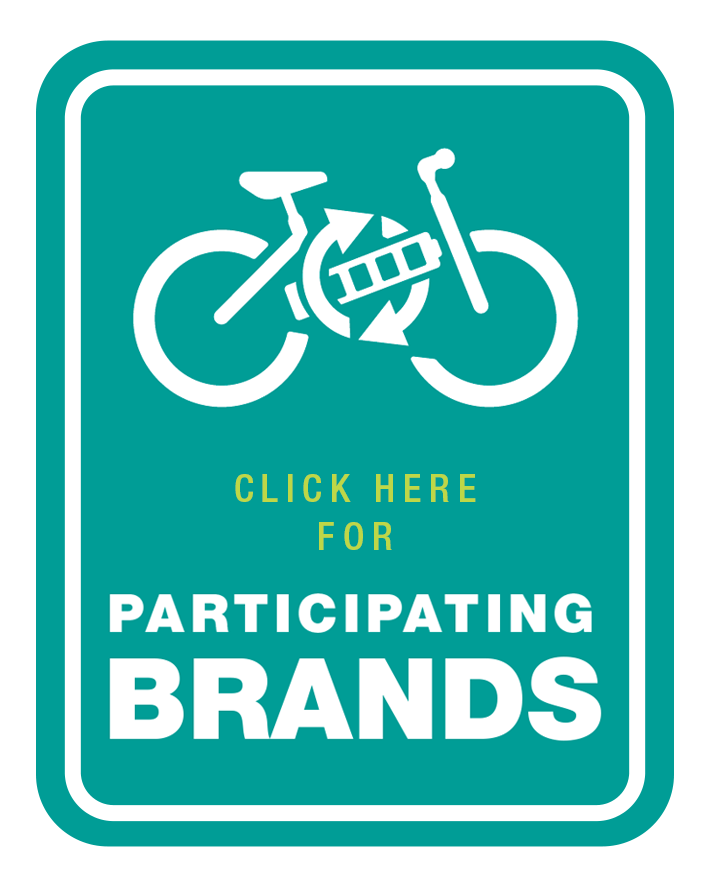
Sports Garage’s annual budget includes a healthy line item for Boulder’s EcoCycle and CHaRM facilities—we make weekly trips.
When a new bike rolls out the door, it leaves a veritable mountain of packaging behind the scenes. Add that packaging waste to worn-out parts, old tires, industrial fluids, and broken frames, and you start to see a picture of the sustainability challenges faced by any local bike shop.
The issue weighs on us. We are an off-road cycling shop because we love exploring natural places and we know the sport we love depends on being good stewards of the land. Thanks to pressure from consumers and independent bicycle dealers, the cycling industry has been making strides to address sustainability. We keep an eye on the ways in which our partners are working to become more land-first, instead of more landfill.
Photo courtesy of Pivot Cycles
Packaging Packs a Punch
If you would ever like to watch the “unboxing” of a pre-assembly full-suspension mountain bike, just swing by. Every single part is in some form of packaging. As recently as 2020, much of this packaging was plastic. In the past few years, we’ve been excited to see all our mountain bike brand partners—Yeti, Santa Cruz, Pivot, and Orbea—commit to plastic-free packaging. This is no small feat, as protecting the frame finish during transport with a non-abrasive material must remain priority #1. This alone reduced our trips to CHaRM by half.
The “unboxing experience” ranks highly as a conversation topic in the marketing departments of direct-to-consumer bike brands because the packaging is delivered straight to an end user’s doorstep, making their sustainability practices highly visible. The best way we can create a similar level of visibility for our consumers is to leave that big recycling dumpster right by the front door!
Photo courtesy of Pivot Cycles
Your Kit vs. Fast Fashion
We recently attended an education session hosted by Squamish-based 7Mesh apparel; it was both informative and encouraging (and a little entertaining, particularly their story about the full warranty they gave a bikepacker who found a raccoon eating his chamois. Eew.). Outdoor apparel manufacturers have largely been leaders in the fashion industry with respect to circular design and “repair, not replace” programs. 7Mesh shared the following statistics, driven by the rise of “fast fashion”:
- 92 million tons of clothing ends up in the landfill.
- 1% of textiles are recycled.
- The average garment gets 7 to 10 wears—an average decline of 36% in 15 years.

Photo courtesy of 7Mesh Apparel
If you’re shopping online for gear, we recommend choosing brands that have all, or several, of the following programs in place:
Repair: Can you send your gear to the manufacturer to be repaired, rather than disposing of it? Example: 7Mesh
Circular Commerce: Does the manufacturer sell gently used items in addition to new apparel items? Example: Wild Rye (redux)
Material Selection: Does the manufacturer engage in sustainable materials development or use recycled materials in their products? Example: PrimeBlue/FiveTen MTB Shoes
Sports Garage supports select brands and places key pieces of technical apparel in inventory based on their performance, but also based on their lifespan, repair policies, or the B-Corp status of the manufacturer. What kind of retailer says, “Just make sure your stuff lasts long so you don’t have to buy more”?!?! We do.
Beating Battery Waste
The battery recycling topic is not new, but it has taken on new significance in the cycling industry with the escalating adoption of e-bikes. Colorado does not have state battery regulations in place, so we comply with federal requirements for battery recycling. Through the endorsement of People for Bikes, and in partnership with e-bike manufacturers, Call2Recycle is the country’s leading e-bike battery recycling and stewardship program.
Through Call2Recycle and our brands, Sports Garage pays a battery recycling fee on every e-bike we build, and we do not pass the recycling costs on to our customers.
Recycling Challenges & Innovations
Carbon fiber recycling remains at the forefront of challenges to address in the bike industry, and R&D efforts have been underway for many years. Enjoying the performance advantages of carbon fiber bike frames, components, and wheels is accompanied by responsibility for waste reduction.
Many bicycle manufacturers are exploring ways to incorporate recycled carbon fiber into products such as handlebars, forks, and seat posts. The reclaimed fibers are typically combined with resins to create composite materials that retain some of the properties of virgin carbon fiber while reducing environmental impact. Methods like pyrolysis, solvent-based processes, and mechanical recycling are used to separate carbon fibers from original resins, allowing them to be reused. For now, repairing broken carbon (when possible) and maintaining a thriving marketplace for used carbon bikes is still the best way to reduce waste.
We don’t believe it’s oversimplification to say that avoiding the landfill is the most obvious way to preserve our wild places; the places that make mountain biking and gravel cycling so special.

